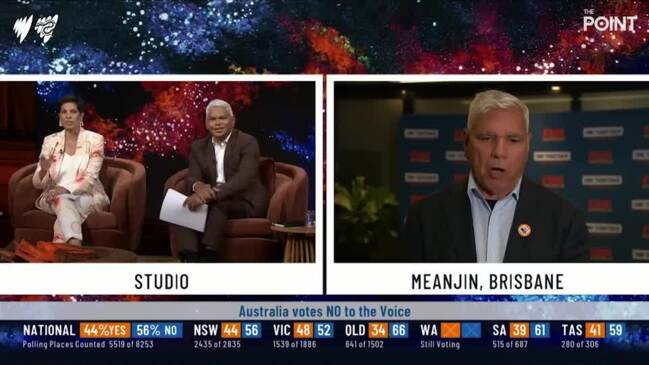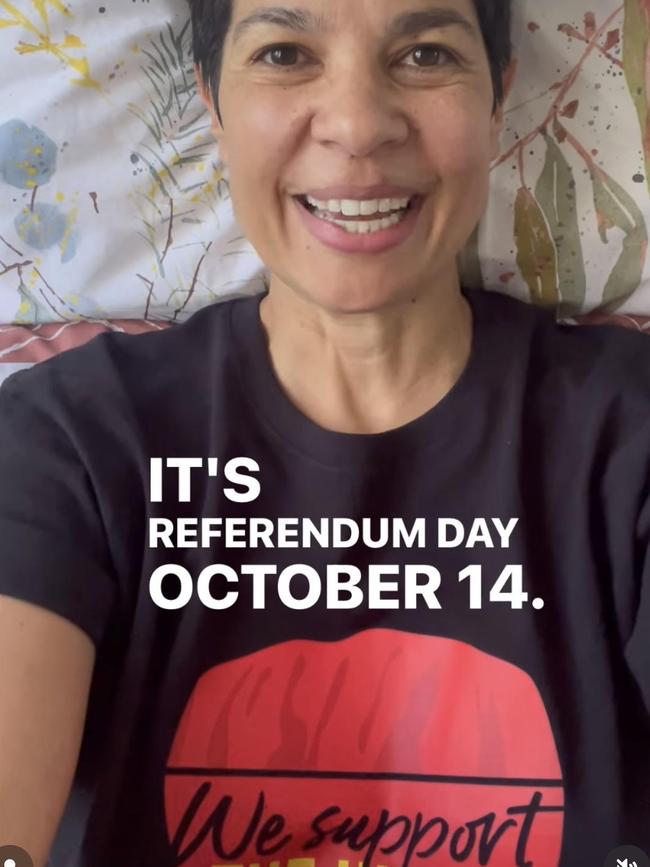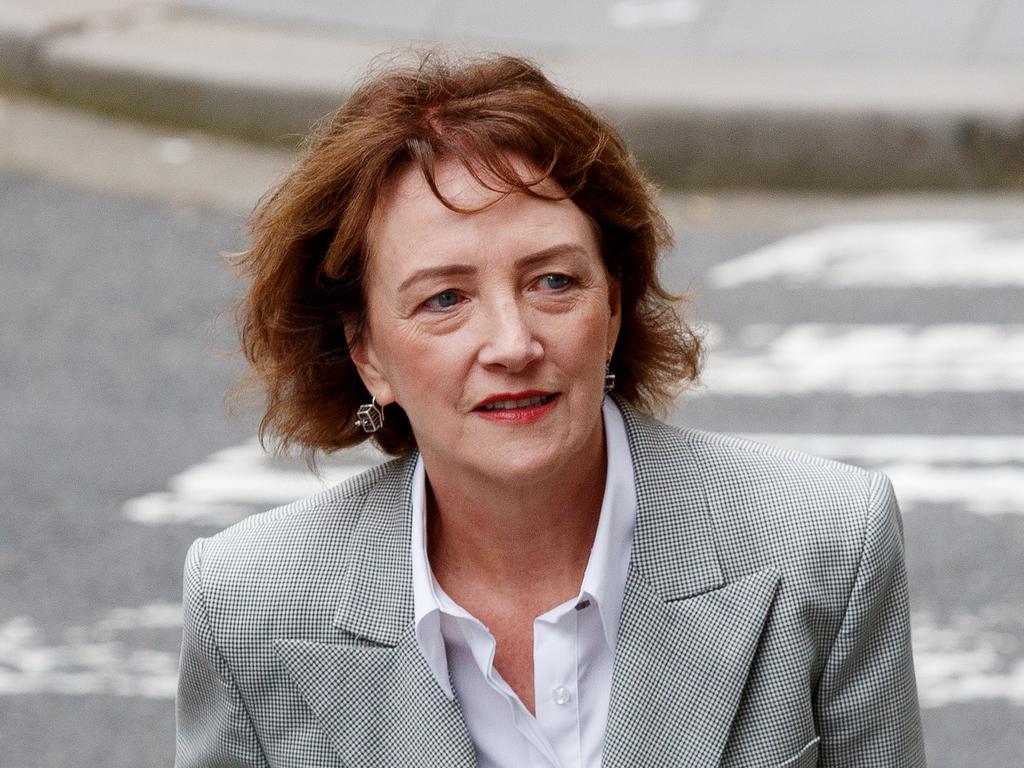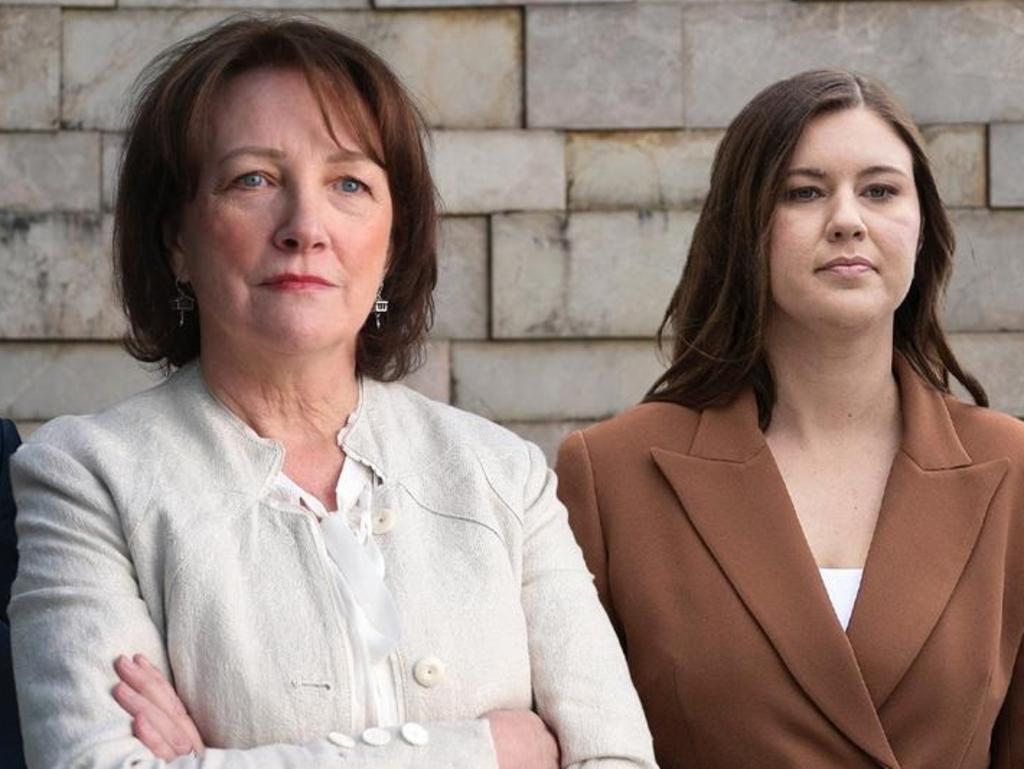SBS apologises to No campaigner Warren Mundine over a segment that aired where Marcia Langton was called a ‘national treasure’
The taxpayer-funded broadcaster has apologised to the No campaigner for airing a segment where host Narelda Jacobs labelled Marcia Langton a ‘national treasure’.

Taxpayer-funded broadcaster SBS has apologised to No campaigner Warren Mundine for airing a heated voice debate that included Indigenous host Narelda Jacobs labelling Yes campaigner Marcia Langton a “national treasure” and technical staff cutting the Indigenous businessman’s microphone so he could not respond to comments made about him.
During the robust discussion that aired on October 14, the night of voice referendum vote, it was moderated by TV presenter Jacobs whose “character observation” had “unduly favoured” Professor Langton, SBS ombudsman Amy Stockwell’s investigation in the matter found.
SBS received eight complaints about the segment, led by Jacobs and John Paul Janke, and in the Ombudsman’s two-month investigation into the matter it found comments made by Jacobs that were glowing of Prof Langton were not impartial and breached the SBS Code of Practice.
Mr Mundine – a former SBS board member – said during the panel discussion, “I’m not going to take any comments from a person that we are a racist country and that we are racist people.”
Mr Mundine said in his complaint to the SBS he was referring to comments made by Prof Langton six years ago: “In 2017, Ms Langton said “Of course, Australia’s racist. It’s a horrible racist country”,” Mr Mundine wrote in his letter of complaint.

Jacobs then said during the robust debate: “Well, we’re not going to sit here and take you abusing a national treasure like Marcia Langton who never said that Australians were racist, and her words were twisted.
“I’m going to stop you there, Warren.
“I think, well, we’ve just seen who Warren Mundine is.”
The SBS ombudsman said in her findings, “the character observation in the closing statement (by Jacobs) gave the impression one perspective had been unduly favoured over another in a way that was inconsistent with the impartiality provisions of the Code.”
Mr Mundine told The Australian the following day the segment was the “worst interview” he had done during the entire voice debate, and he later complained to the SBS.
The ombudsman’s investigation also found that at 8.06pm during the panel debate Mr Mundine stated that there should be an audit of funding for First Nations services, which he supported.
His microphone was subsequently switched off.
The ombudman’s review said Professor Langton then “called for a specific audit of ‘hundreds of thousands of dollars’ of public moneies that were awarded to your (Mr Mundine’s) private company for a television program, as well as ‘seven million dollars and more [you] got from the Coalition Government’.”
Mr Mundine’s response to this was not sought, and the ombudsman said in the review, “The timing and communication about the deactivation of your microphone combined with the time taken to return to you for response to a significant claim meant you and the audience did not receive the benefit of your reply.”
This was also a breach of the SBS Code of Practice – it failed to meet the standards of a balanced presentation of news and current affairs.
Jacobs remains outspoken on Indigenous issues and despite saying earlier this year to The West Australian newspaper that as an SBS employee she is careful in ensuring she does not publicly state her position on the voice, she has proven otherwise.

On the day of the referendum, Jacobs posted on Instagram a video of herself where she was wearing a t-shirt emblazoned with the words, “We support The Uluru Statement.”
SBS was asked if Jacobs would be apologising to Mr Mundine and whether she was disciplined over the incident but a spokeswoman would not comment.
A spokeswoman said: “We note the SBS Ombudsman’s findings related to elements of a robust exchange between guests during the live program.
“The intention of the actions taken by the program team was to ensure that the conversation taking place remained clear for audiences, fact-based and a safe space for discussion.”







To join the conversation, please log in. Don't have an account? Register
Join the conversation, you are commenting as Logout